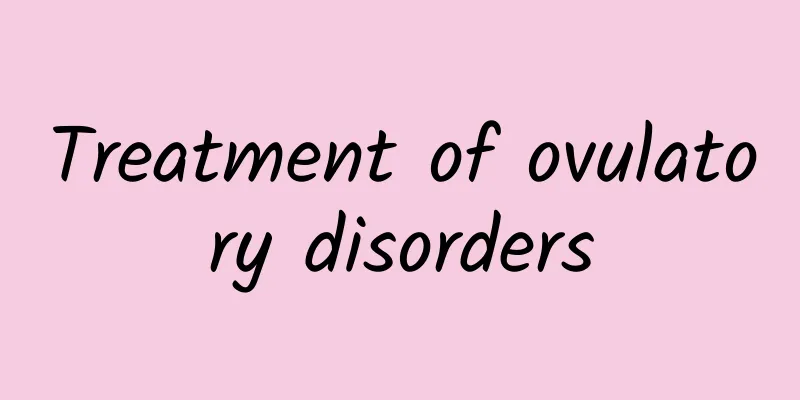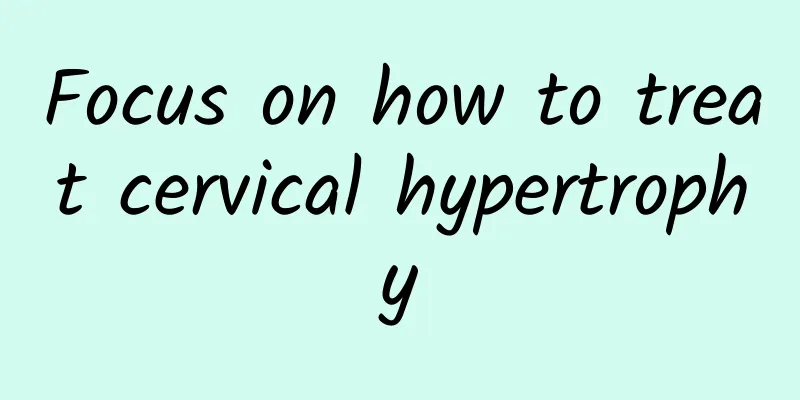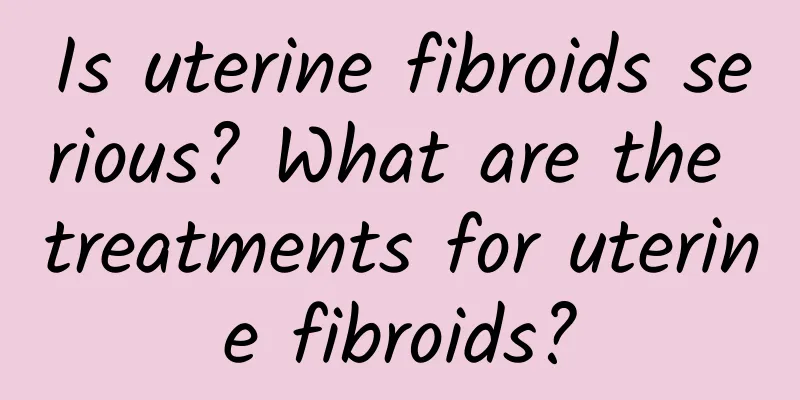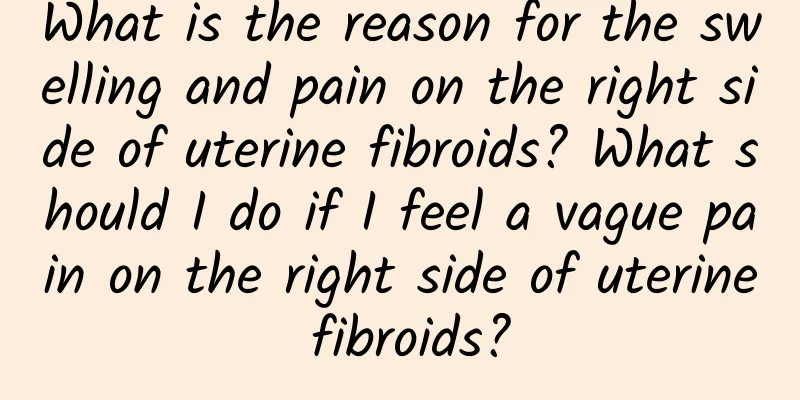Treatment of ovulatory disorders

|
What are the methods to eliminate ovulation disorders? In life, many people suffer from female infertility, which is mostly caused by ovulation disorders. Faced with the emergence of ovulation disorders, many women suffer from infertility. Ovulation disorders can cause female amenorrhea, dysfunctional uterine bleeding, etc. For women, treatment should be sought as soon as possible. Treatment is necessary. In life, there are many ways to treat ovulation disorders, such as surgical treatment, drug treatment, etc. So, what are the methods to treat ovulation disorders? Western medicine treatment of ovulation disorders: 1. Psychological treatment of ovulation disorders: Ovulation disorders caused by psychological factors are common in clinical practice. They are caused by anxiety, depression, irritability, etc. caused by infertility pressure, leading to endocrine disorders. Therefore, it is very necessary to carry out necessary psychological support and counseling treatment. 2. Surgical treatment of ovulatory disorders: Is medicine the main method for treating ovulatory disorders? It is suitable for patients who have failed to respond to drug-induced ovulation therapy, laparoscopic electrocoagulation or laser puncture to penetrate polycystic ovaries, and who have a high pregnancy rate after postoperative Chinese medicine treatment of ovulatory disorders. Avoid postoperative adhesions. 3. Injectable urinary gonadotropin for the treatment of ovulation disorders: HMG is extracted from the urine of menopausal women, so it is also called human menopausal gonadotropin. Because it contains a large amount of impurity urine protein, intramuscular injection can cause local irritation (swelling, pain), and rarely allergic reactions. More importantly, in the treatment of ovulation disorders, high doses of luteinizing hormone (LH) can affect the quality of eggs and the effect of ovulation. Symptoms and treatment of ovulatory disorders: 1. Menstrual problems: In the process of preventing ovulation disorders, menstruation is also a key point. Women should pay attention to changes in menstrual cycle, volume, color, etc. The normal menstrual cycle is about 25 to 35 days. When women are close to ovulation, if menstruation is delayed, some vaginal discharge will appear. Ovulation will also be affected by monthly changes. 2. Weight control: Women's ovulation disorders are also closely related to their own weight. Obesity or being too thin can interfere with the endocrine system, cause endocrine disorders, and have a greater impact on ovulation. Controlling weight helps treat and prevent diseases. 3. Ovulation induction therapy: There are many types of ovulation induction drugs, which work through different mechanisms. However, these drugs should be used with caution, and patients with ovulation disorders should be guided by a doctor. What are the methods to eliminate ovulation disorders? The above is a detailed introduction to the treatment of ovulation disorders, I hope it will be helpful to you. Once we find that we are infertile due to ovulation disorders, we need to treat the symptoms in time. |
<<: There are four ways to check the fallopian tubes:
>>: What are the factors that lead to premature ovarian failure?
Recommend
Selection of dietary recipes for post-abortion
Although with the increase in abortion rates and ...
When can I wash my hair after an abortion? How many days after an abortion can I wash my hair?
Abortion is a common gynecological surgery used t...
What are the reasons for irregular menstruation in women? Can women with irregular menstruation get pregnant?
Menstruation is a physiological reaction that eve...
Does mild cervical erosion need treatment? Common knowledge about diseases related to mild cervical erosion in women
Nowadays, almost all women have gynecological dis...
What causes threatened miscarriage?
What causes threatened miscarriage? Threatened ab...
The impact of daily personal hygiene on adnexitis
The cause of adnexitis is closely related to some...
Vulva itching with small lumps under the skin
What happens if there are small lumps under the s...
What are the causes of uterine fibroids?
Among the many gynecological diseases, uterine fi...
How long is the interval between medical abortions?
If a woman wants to continue to have medical abor...
How to treat pelvic effusion
How is pelvic effusion treated? Pelvic effusion i...
Early symptoms of ectopic pregnancy
Ectopic pregnancy is an acute abdominal disease i...
What are the causes of cervical hypertrophy?
Cervical hypertrophy is a common gynecological di...
What are the types of uterine fibroids? Are the symptoms of uterine fibroids serious?
The occurrence of uterine fibroids has always bee...
Is back pain caused by pelvic inflammatory disease? Not necessarily
The occurrence of adverse symptoms such as low ba...
How to regulate irregular menstruation during lactation? What drugs can treat irregular menstruation?
Generally speaking, new mothers will have menstru...









